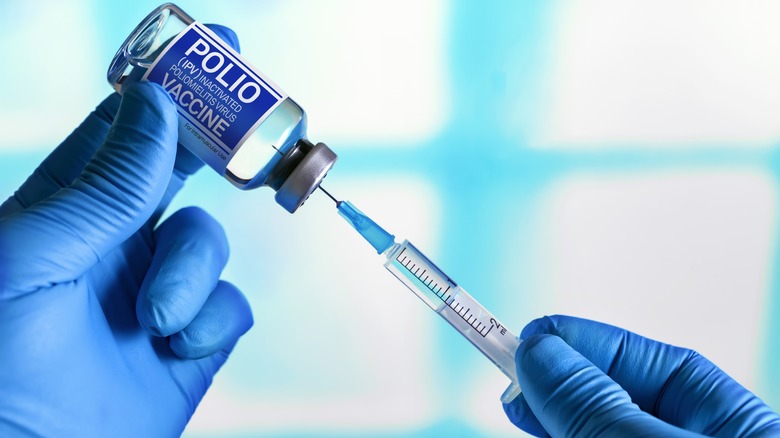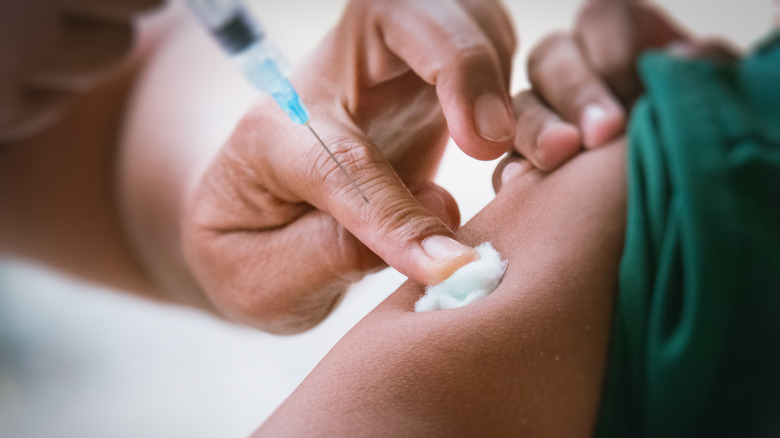Officials Call For More Polio Vaccines As Cases Are Likely To Spread
Polio might seem like a thing of the past, but in June the virus developed in an American man for the first time in a decade (via The Associated Press). And now, officials are nervous that there could be hundreds more cases circulating and are calling for more polio vaccines, according to CNN.
Polio is a life-threatening disease caused by the poliovirus (via Cleveland Clinic). While 70-95% of people infected with it don't show symptoms, those who do can experience fatigue, fever, headache, sore throat, vomiting, and diarrhea. They may also develop a stiff neck, sensitivity to light, pins-and-needles sensations in the arms and legs, and even paralysis. Up to 10% of those who experience paralysis can die from complications. Those most at risk for developing polio are those who haven't been vaccinated and are under the age of 5, are pregnant, live in an area with poor sanitation, or have lived in or traveled to an area where polio hasn't been eradicated.
While there were many polio outbreaks in the U.S. between 1948 and 1955, the creation of a polio vaccine in 1955 helped control the spread, leading to the elimination of polio in North and South America by 1994 (via Mayo Clinic). But now, that's changed.
Fears of a silent spread of polio
When a man in Rockland County, New York became paralyzed due to polio in June, a team from the Centers for Disease Control and Prevention (CDC) traveled to the area, which has a shockingly low vaccination rate (via CNN). While the nationwide rate of vaccination against polio is 93%, it's just 60% in Rockland County and neighboring Orange County.
Despite there being just one identifiable case, the team of CDC detectives say that since most people with polio don't have symptoms, there must be hundreds more cases and that this is just the tip of the iceberg. The virus has also been found in sewage in the area, just north of New York City. Education efforts on the importance of prevention are underway, but Dr. José Romero, director of the CDC's National Center for Immunization and Respiratory Diseases, worries that since most Americans have never actually seen a case of polio, they aren't afraid of it enough to take action. Vaccination is the only thing that can prevent polio, which has no cure.
The CDC is considering its next steps, including offering young children a booster shot or recommending extra doses to some adults. In the United Kingdom, officials are already implementing an urgent vaccination campaign for all children under the age of 10 as the virus spreads there, as well in other countries around the world (via CNBC).


